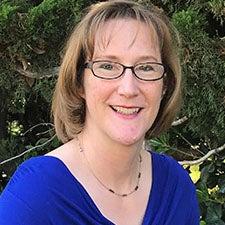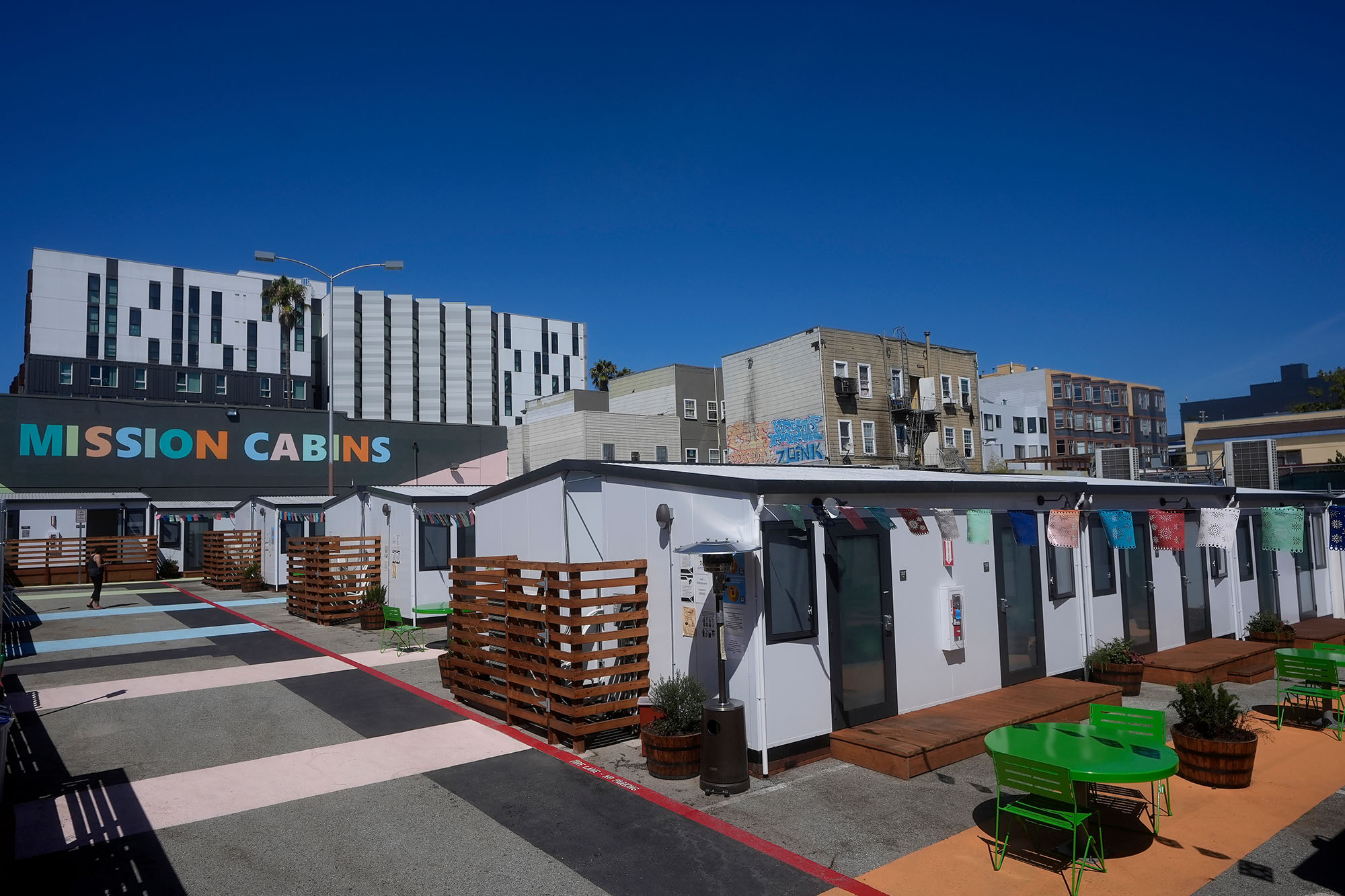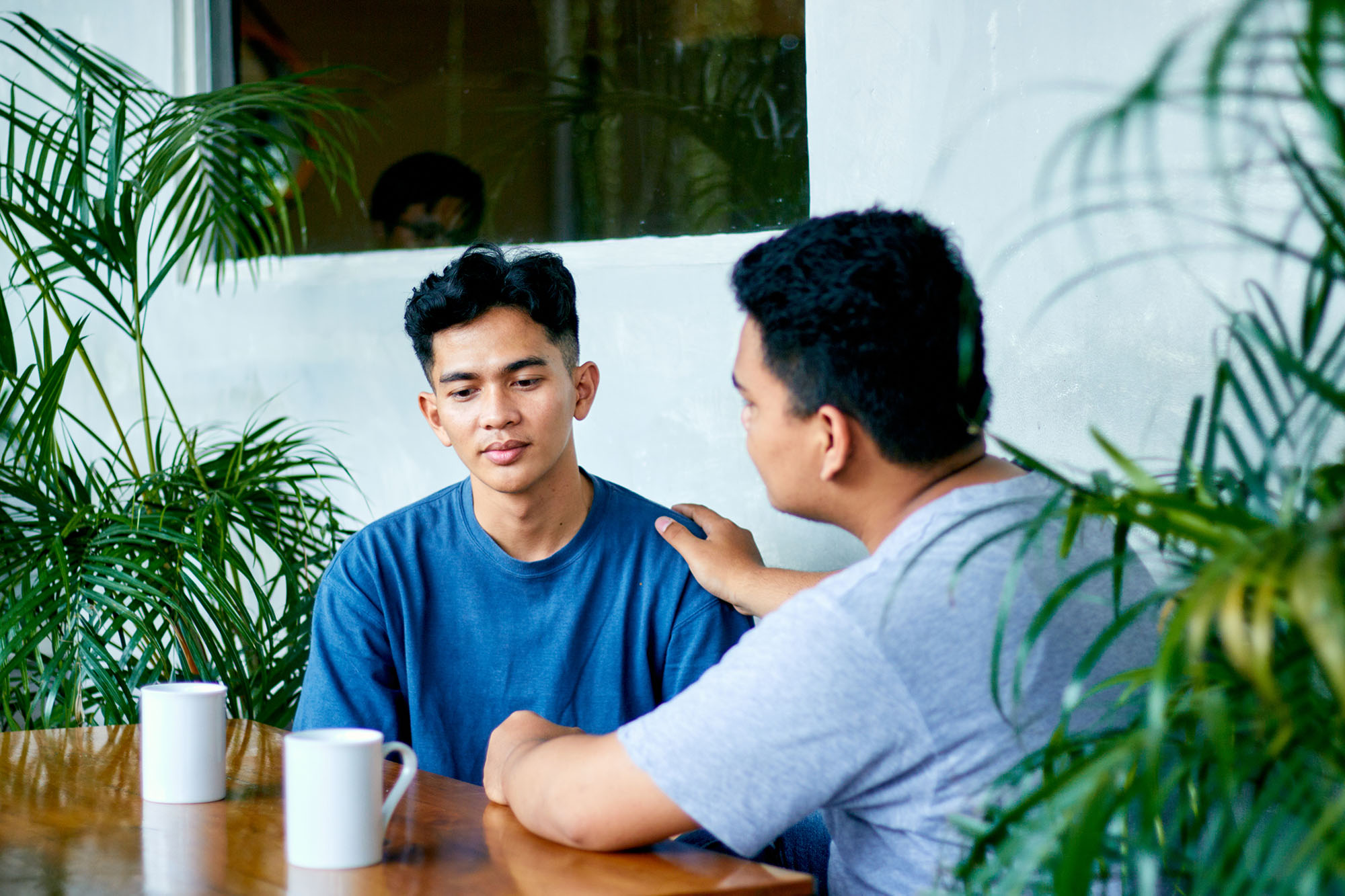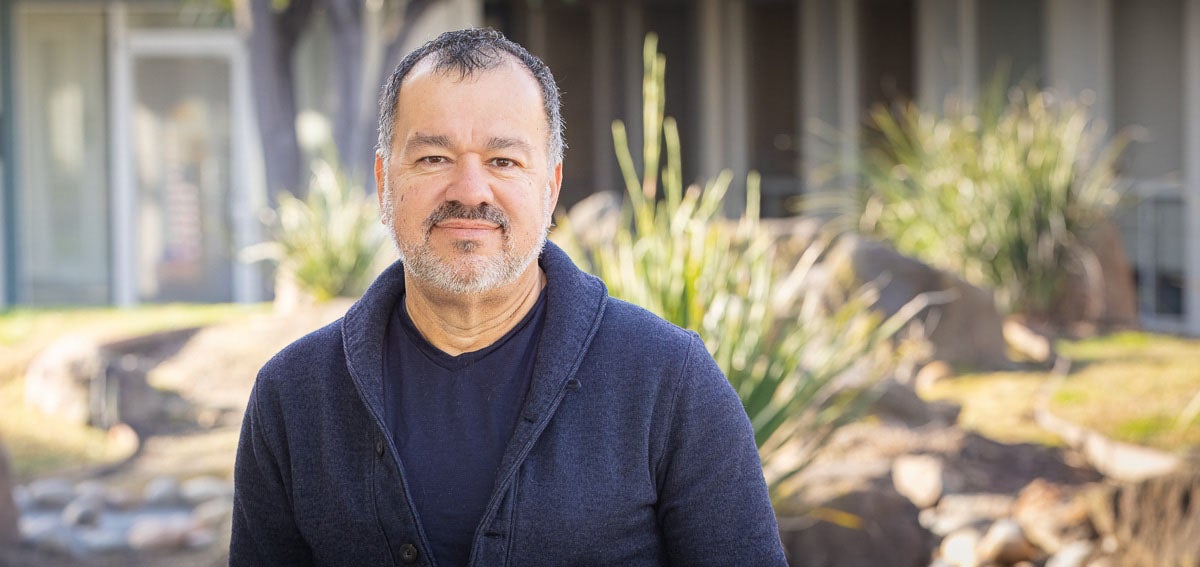|
Getting your Trinity Audio player ready…
|

Naveed Etemadipour, a substance use disorder counselor at a community health center in San Diego, recently saw a client who nearly died of an overdose after decades of struggling with opioid use. In the past, Etemadipour might have connected the man with medication-assisted treatment or put his name on the long waiting list to see a licensed therapist. This time, he tried a new approach. Etemadipour had recently participated in an innovative program that trains community health workers, first responders, teachers, and others to provide effective mental health counseling without needing to become a licensed health care provider. Among the skills he learned during the 65-hour training course were cultivating a therapeutic alliance with clients, listening with empathy, and helping people decide if they are ready to make behavioral changes.
With the training fresh in his mind, Etemadipour asked the client open-ended questions and reflected back on what he heard. The client, a Vietnam War veteran, shared that he was burdened with survivor’s guilt and shame related to his actions during the war — feelings he had never revealed to anyone.
Through their conversations, the veteran realized these feelings triggered his desire to use drugs. That was a breakthrough. Today, the man continues to see Etemadipour on a weekly basis and has remained sober for more than a year.
Etemadipour is one of hundreds of non-licensed Californians who have graduated from the Lay Counselor Academy (LCA), a program launched in 2022 by a licensed therapist and a lay counselor who were frustrated by the widespread lack of access to mental health care. According to CHCF’s 2024 California Health Policy Survey, 55% of Californians reported unreasonable wait times for mental health treatment. Data also show that access to care is most difficult for groups with the highest prevalence of mental illness — that is, children and adults of color and families with low incomes.

The co-creators of LCA — Elizabeth Morrison, PhD, LCSW, a psychologist and licensed clinical social worker, and lay counselor Alli Moreno — recognize that their approach is new in this country. However, it is already well established in India, Africa, and other areas of the world where mental health providers are in short supply. What’s more, studies show that the clients of lay counselors have similar outcomes to the clients of licensed clinicians. A 2020 study in JAMA Network Open concluded that the effects of telehealth sessions led by lay counselors compared favorably with the effects of telehealth therapy delivered by licensed clinicians.
Lay Counselors Fill Mental Health Gaps
That’s because lay counselors are typically people who possess certain natural aptitudes that lead to therapeutic success. Ideal candidates for doing well in LCA are people with strong interpersonal skills, high levels of self-awareness, the ability to establish trust quickly, empathic communication skills, and humility. “A mountain of research has shown that these are the skills necessary to create an effective therapeutic alliance, which is correlated to good client outcomes,” said Morrison, who is also CEO of EM Consulting, a team of nine lay counselors and licensed mental health providers.
Morrison and Moreno hope to close the gap in access to mental health support — particularly in populations with low-incomes and other marginalized groups — by training people who already are interacting with community members in schools, health clinics, emergency departments, churches, and housing organizations.
“In our current system, workers in these community settings are told to ‘refer, refer, refer’ when it comes to mental health issues, so they send clients to a therapist who is booked months out,” said Morrison. “It feels maddening knowing that these individuals often have many of the skills to provide the care.”
Morrison is an alumna of the CHCF Health Care Leadership Program, a two-year, part-time fellowship that offers clinically trained health care professionals the experience and skills necessary for effective vision and leadership in the health care system. She completed the program in 2012.
Access to Diverse Counselors
The program’s reach is widespread. Morrison and Moreno have trained people throughout the state who are living in communities with severe shortages of mental health providers, including Shasta County, the Central Valley, the Imperial Valley, and San Diego County. Other participants hail from New York, Colorado, Washington, and New Mexico.
LCA has also attracted a student body that is more representative of the clients they hope to serve. While the licensed therapy field is dominated by White clinicians, the LCA’s 320 graduates are more diverse — 38% Latino, 31% White, 13% Asian, and 9% Black.
The course, which includes one in-person session and 13 live, virtual sessions, equips participants with the skills needed to help people who are struggling with anxiety, depression, suicidality, substance use, and other issues. Though the students are naturally empathetic, they learn to avoid advice-giving and false reassurances, such as “Don’t worry — it will be OK,” because these missteps can communicate that they are done listening and can shut down the person they are trying to help.
Instead, lay counselors are encouraged to ask open-ended and nonjudgmental questions, acknowledge feelings, let the client lead the discussion, and affirm strengths. Morrison also recommends that organizations provide LCA graduates with regular clinical support from a licensed clinician.

Ben Wang, director of special initiatives at Asian Health Services (AHS) in Oakland, was drawn to LCA because he was concerned about victims of violence who were not accessing mental health services.
“Often, I see individuals fall through the cracks due to language and cultural barriers, stigma about mental health, and the shortage of providers,” said Wang, who leads the Community Healing Unit for AHS, a Federally Qualified Health Center serving immigrants and refugees. The unit is staffed with associate social workers, but “many of our clients are not ready to do one hour of talk therapy, which is more of a Western construct for treatment,” he said.
The agency sent 29 staff members fluent in Vietnamese, Korean, Mandarin, Cantonese, and other languages spoken by their clients to LCA. Now, each client has an opportunity to receive lay counseling in their preferred language.
The impact has been deeply felt. When one family lost a loved one to homicide, lay counselors cultivated trust and rapport with three generations of the same clan. “These violent incidents can create shame, self-blaming, and trauma memories for people who are survivors of genocide and war,” said Wang.

Through his connections with community-based organizations in Oakland, Wang is helping to organize LCA training for 40 additional people who serve youth, incarcerated individuals, refugees, and others affected by violence. “I’d like to see hundreds of community workers in Oakland and throughout the state receive lay counseling training because I’ve seen how effective it can be,” Wang said. “When a counselor shares a client’s language and communication style, that person is more open to talking.”
Bridging Gaps with Bold Questions
In parts of the state that are less diverse, the training prepares community members to better serve historically marginalized groups. Jenny Melchor, a housing case manager at Hill Country Community Clinic in Redding, became aware of her own biases when she participated in LCA training. She learned about the generational trauma experienced by different racial and ethnic groups in her area and how to be more curious about the life experiences of her clients. “Now I’m willing to ask hard questions so I can better understand someone from a different race or religion,” she said. “I will ask, ‘What is it like to be Black in this White small-town community?’ and take time to deeply listen to their responses.”

She also learned how to ask bold questions when clients disclose mental health struggles. When one woman mentioned that her father had recently committed suicide, Melchor asked the woman how this had affected her. The client shared that she had no social support as she faced the loss of her father and that she did not want to be alive anymore. Melchor cultivated the woman’s trust and helped connect her to a psychiatrist, a therapist, and a detox program.
Striving to Gain Acceptance
Although LCA graduates are seeing people in their communities benefit from the increased access to mental health support offered by lay counselors, Morrison acknowledges that the model is controversial. Lay counselors are not state-licensed providers, and many people hold the belief that only licensees can provide mental health treatment. “It is an important conversation to have,” she said. “We are providing training to people who have a lot of natural skills, aptitudes, and life experiences that have equipped them to do this work.”
Despite the fact that surveys in multiple countries have found that outcomes for clients who see lay counselors are similar to outcomes for clients who see licensed therapists, Morrison said, mental health counseling by lay counselors is not covered by insurance companies. So, at present, most graduates of the program are incorporating LCA’s training into their current jobs. Still, Morrison hopes health insurance companies will consider payment structures that allow care organizations to hire trained lay counselors as mental health providers. “One of the drivers of our current mental health crisis is that insurance reimbursement is tied to licensure,” Morrison said.
For now, there are other routes. Staff in organizations can provide lay counseling to clients and they can access mental health support themselves through Flourish, an employee assistance service offered by EM Consulting that provides counseling via phone or video. Sixty percent of the counseling sessions are handled by lay counselors with backup from licensed clinicians, Moreno said.
Looking at the state of the field, LCA participants often share a common concern: there are too many people experiencing mental health challenges who cannot access care they need. The current system of earning a master’s degree and securing a state license to provide mental health care is a long, expensive process, and lay counseling could be a creative solution to this problem.
“We have a dream of a future without waiting lists,” said Moreno. “Mental health counseling should be high quality and easy to access for everyone.”
Authors & Contributors

Heather Stringer
Heather Stringer is a freelance health and science journalist based in San Jose. She studied civil engineering at Stanford University and started her journalism career at a daily newspaper in Fremont. Heather began covering health care as a staff writer and editor at a nursing magazine and launched her freelancing career in 2003. Her work has been published in Scientific American, Monitor on Psychology, Cure, Proto, and Nurse.com.

David Poller
David Poller has worked as a photojournalist at newspapers and international wire services from Miami to Alaska. He shoots editorial and commercial assignments in Southern California and is a photo editor for the New York Times. Poller is a member of the National Press Photographers Association and the Association of LGBTQ Journalists.

Paige Ricks
Paige Ricks is a photographer based in Oakland, California. With her background in journalism, storytelling is integral to her photography. While studying at UC Berkeley Graduate School of Journalism, she quickly gravitated towards her camera, blending writing with visual narratives. Her photography is bold, expressive, and optimistic, often utilizing a saturated color palette to highlight her subjects’ vibrant energy.
Ricks also holds a master’s of fine art in photography from the Academy of Art in San Francisco, a Bachelor’s of Arts from CSU Fresno, and she recently completed a Graphic Design Certificate from UC Berkeley Extension.

Hung T. Vu
Hung T. Vu is a freelance photojournalist and founder of HT Vu Photography, which is based in Redding, California. Vu received a BFA degree in photography at the University of Illinois – Chicago. He began his career as a photojournalist with the Chicago Tribune in 1990 and moved to California in 2009. He and his family settled in Redding in 2012.
Vu has provided photographs of news, sports, and special events in Orange County for the OC Register and now makes photos for the Record Searchlight, the city of Redding, the Los Angeles Times, CalMatters, and the California Health Care Foundation. He also taught photography at Mercy High School in Red Bluff, California.





